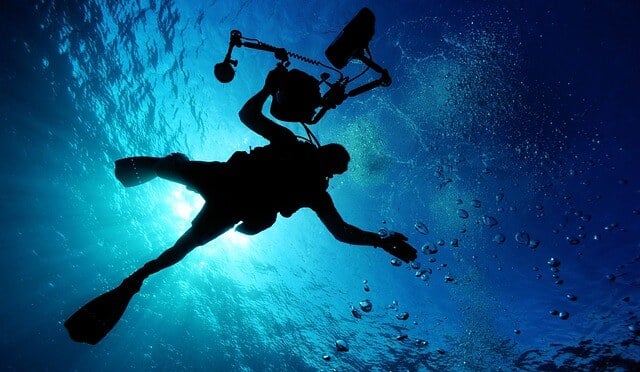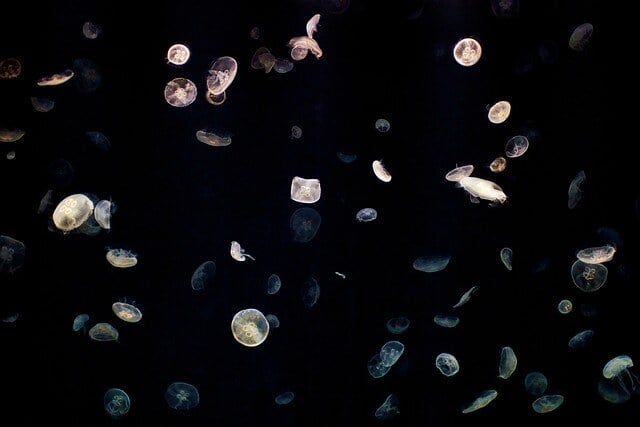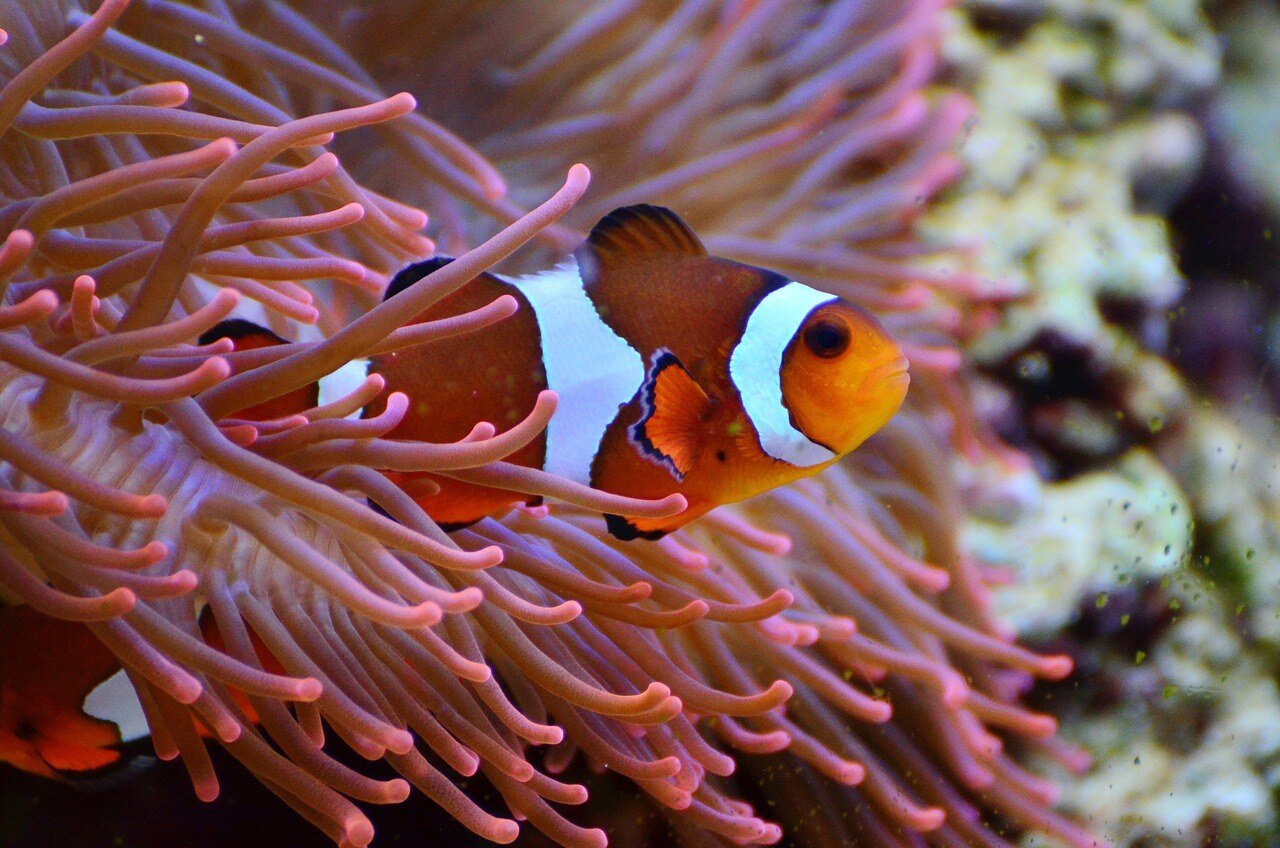Anyone that is old enough to remember the old Jacques Cousteau aquatic oceanographer documentaries, or have been privileged to have watched the David Attenborough Living Earth episodes that cover life below the ocean wave, you will know what wonders the oceans have.
Those that really appreciate those wonders and can't get enough of the multitude of species that exist in the seas around the planet, will be thrilled to know that there is a tailor-made vocation that they can just slide into where you can study marine life up close. That is Marine Biology.
Those that take the plunge, if you pardon the pun, will get the chance to study and work with fascinating marine life forms, ecosystems, and environments, allowing them to contribute to the conservation and understanding of these ecosystems.
Their work often contributes to conservation efforts aimed at protecting endangered species, habitats, and ecosystems, which can be incredibly fulfilling, and, Marine Biologists enjoy a wide range of career opportunities.
One can work in research, education, conservation, policy-making, aquariums, or even in industries like pharmaceuticals or biotechnology that rely on marine organisms for discoveries and applications.
Overall, the opportunity to work in a field that combines passion for the natural world with meaningful contributions to science and conservation makes a career in marine biology deeply rewarding for many individuals.
Top 10 Best Paying Marine Biology Jobs 2026 (Inc Salaries)
1. Research Assistant
A Marine Biology Research Assistant is an individual who works in support of scientific research within the field of marine biology, and their primary role is to assist scientists, marine biologists, or research teams in conducting experiments, collecting data, and carrying out various tasks related to marine biology research.
The role is often an entry-level position in the field of marine biology, offering valuable hands-on experience and exposure to various aspects of research methodologies, fieldwork, and laboratory techniques.
It can be an excellent starting point for individuals interested in pursuing a career in marine biology or related scientific disciplines.
Becoming a Research Assistant typically involves a combination of education, relevant experience, and networking, but more often than not you will require: A bachelor's degree in marine biology, biology, oceanography, or a related field.
Some research assistant positions may require a master's degree or higher for more specialized roles. Honing your laboratory and field research skills. Proficiency in data collection, analysis, laboratory techniques, and scientific writing is crucial.
Pursuing higher education, such as a master's or doctoral degree, to advance your career prospects and specialize in a particular area of marine biology.
The average annual salary for a Research Assistant in the US is $39,342.

2. Commercial Diver
A Commercial Diver is a professional trained to perform underwater tasks and activities in various industries for commercial purposes and work in environments such as offshore oil rigs, construction sites, shipping and maritime industries, scientific research, underwater inspections, salvage operations, and more.
The job can be physically demanding and potentially hazardous due to the underwater environment and associated risks such as pressure-related injuries, equipment malfunctions, and adverse weather conditions, therefore, divers must adhere to strict safety protocols and be in good physical condition.
Becoming a commercial diver involves specific training, certification, and gaining experience in diving techniques and underwater operations, but more often than now you will need:
To have completed training courses in commercial diving programs that cover topics such as diving physics, decompression theory, equipment maintenance, underwater welding/cutting (if applicable), safety protocols, and emergency procedures.
Practical diving exercises in controlled environments or pools are also part of the curriculum. After completing the training program, you'll need to obtain certifications recognized by industry standards.
Certifying agencies like the Association of Commercial Diving Educators (ACDE), Divers Institute of Technology (DIT), or other national bodies offer certifications upon successful completion of their programs and examinations.
Maintaining physical fitness and diving skills regularly, and ensure regular practice and adherence to safety protocols which are crucial for a successful career as a commercial diver.
The average annual salary for a Commercial Diver in the US is $48,124.
3. Biologist
A Biologist is a scientist who studies living organisms and their interactions with the environment. The field of biology is broad and encompasses various sub-disciplines, each focusing on different aspects of life sciences.
Their work contributes to a better understanding of life on Earth, including the mechanisms governing biological systems, the impact of environmental changes, the development of new medicines, and conservation efforts to protect biodiversity.
Within each specialization, Biologists may focus on specific research areas, contribute to scientific discoveries, publish findings in academic journals, and apply their knowledge to address real-world issues in fields such as healthcare, agriculture, environmental conservation, and biotechnology.
Becoming a biologist involves several steps, including education, gaining experience, and developing specific skills but generally you will require:
A bachelor's degree in biology or a related field (such as biochemistry, molecular biology, ecology, genetics, etc.) from an accredited institution. Depending on your career goals, pursuing a master's or doctoral (Ph.D.) degree might be necessary, especially for research-based or academic positions.
Gaining proficiency in laboratory techniques, including microscopy, DNA analysis, cell culture, and data analysis. Depending on your area of interest (e.g., ecology, zoology), develop skills related to fieldwork, such as sampling, data collection, and ecological monitoring. Or, developing strong analytical and critical thinking skills to approach biological problems and design experiments.
The average annual salary for a Biologist in the US is $56,527.
4. Ecologist
An Ecologist is a scientist who studies the relationships between organisms and their environment. Ecology is the branch of biology that focuses on understanding the interactions among living organisms and their physical surroundings.
They investigate various aspects of ecosystems, including the distribution, abundance, behavior, and interactions of living organisms, as well as the environmental factors that influence these biological communities, and study ecosystems at different levels, from individual species to entire landscapes, aiming to understand the intricate connections between organisms and their environment.
Becoming an ecologist typically involves pursuing a combination of education, gaining field experience, developing specific skills, and building a strong foundation in ecological principles, but generally you will require:
A bachelor's degree in ecology, biology, environmental science, or a related field from an accredited institution. Gaining proficiency in field research techniques such as sampling methods, data collection, and ecological surveys.
Field experience is crucial for understanding ecosystems and their dynamics. Developing strong analytical and research skills, including statistical analysis, data interpretation, and experimental design.
Considering pursuing a Master's or Ph.D.: Advanced degrees can provide in-depth knowledge, research opportunities, and specialized expertise in specific areas of ecology. Obtaining certifications or additional training in specialized areas within ecology to enhance your expertise.
The average annual salary for an Ecologist in the US is $69,985.
5. Environmental Consultant
An Environmental Consultant is a professional who provides expert advice and services related to environmental issues, regulations, sustainability, and conservation.
They work with various clients, including businesses, government agencies, non-profit organizations, and industries, to assess, manage, and mitigate environmental impacts associated with their activities or projects.
All in all, they play a crucial role in helping organizations minimize their environmental impact, comply with regulations, and adopt sustainable practices, contributing to environmental stewardship and conservation efforts.
Becoming an Environmental Consultant involves several steps, including education, gaining experience, developing specific skills, and networking within the industry, but generally you will require:
A bachelor's degree in environmental science, environmental engineering, ecology, geology, biology, chemistry, or a related field from an accredited institution.
Acquiring proficiency in conducting environmental assessments, audits, and impact evaluations. Gaining a strong understanding of environmental regulations, permitting processes, and compliance standards.
Developing strong analytical skills for interpreting data, conducting risk assessments, and analyzing environmental impacts, or obtaining relevant certifications in environmental assessment, project management, or, specializing in areas such as wetland delineation or hazardous materials management to enhance your expertise and credibility.
The average annual salary for an Environmental Consultant in the US is $74,598.
6. Marine Engineer
A Marine Engineer is a professional who specializes in the design, construction, operation, and maintenance of marine vessels, structures, and related systems.
These engineers are responsible for ensuring the safe and efficient functioning of various types of ships, boats, offshore platforms, and maritime equipment, and play a crucial role in the maritime industry by ensuring the efficient and safe operation of vessels, contributing to advancements in marine technology, and addressing challenges related to sustainability and environmental impact in maritime operations.
Becoming a Marine Engineer involves a combination of education, gaining practical experience, obtaining relevant certifications, and developing specialized skills in the field of marine engineering, but generally you will require:
A bachelor's degree in marine engineering, naval architecture, mechanical engineering, or a related field from an accredited institution. Depending on the country or region, you may need to obtain licenses or certifications to work as a marine engineer.
Requirements vary, but obtaining certifications like the Certificate of Competency (CoC) may be necessary for certain positions.
Considering pursuing advanced degrees, as some Marine Engineers opt for advanced degrees such as master's or doctoral degrees in specialized areas within marine engineering, naval architecture, or offshore engineering.
Obtaining certifications or additional training in specialized areas such as marine propulsion systems, offshore structures, or maritime regulations to enhance your expertise.
The average annual salary for a Marine Engineer in the US is $92,485.
7. Environmental Planner
An Environmental Planner is a professional who specializes in the development, implementation, and management of plans and policies that aim to promote environmental conservation, sustainability, and responsible land use.
They work in various settings, including government agencies, consulting firms, non-profit organizations, urban planning departments, environmental advocacy groups, and private development companies to ensure that development projects, land use initiatives, and policies align with environmental goals, regulations, and community needs.
To become an Environmental Planner, you'll need a combination of education, practical experience, skills development, and networking within the field of environmental planning, but generally you will require:
A bachelor's degree in environmental planning, urban planning, geography, environmental science, or a related field from an accredited institution.
A Master's degree, which while not always mandatory, obtaining a master's degree in environmental planning, urban planning, or a related field can enhance your expertise and job prospects.
Familiarizing yourself with Geographic Information Systems (GIS) and other software used in environmental planning for data analysis, mapping, and modeling, or, obtaining certifications related to environmental planning or urban planning.
Some regions or positions may require specific certifications or licensing for environmental planners.
The average annual salary for an Environmental Planner in the US is $88,581.

8. Scientist
A Marine Biology Scientist is a professional who specializes in the study of marine organisms, their behaviors, interactions, ecosystems, and the ocean environment as a whole.
They explore various aspects of life in marine environments, including the biology, ecology, physiology, behavior, and conservation of marine organisms, and work in various settings, including universities, research institutions, government agencies, conservation organizations, aquariums, and private industries related to marine research, fisheries, aquaculture, or environmental consulting.
To become a marine biology scientist, you'll need to follow a series of steps that include education, gaining practical experience, developing specific skills, networking, and pursuing opportunities in the field of marine biology research, but generally you will need at least a bachelor's degree in marine biology, biology, zoology, marine science, or a related field.
Pursuing a Master's or Ph.D.: Advanced degrees can provide specialized knowledge, research opportunities, and an advantage in competitive job markets, especially for research-focused roles or academia.
Developing skills in fieldwork techniques, such as specimen collection, data recording, and ecological surveys in marine environments.
Acquiring proficiency in laboratory techniques used in marine biology research, including molecular biology, microscopy, and data analysis.
The average annual salary for a Scientist in the US is $93,377 and is a high paying marine biology job.
9. Professor
A Marine Biology Professor is an academic professional who specializes in teaching and conducting research in the field of marine biology within a university or college setting.
These professors typically hold an advanced marine biology degree (such as a Ph.D.) in marine biology or a related discipline and are experts in their field.
They work in universities and colleges, where they play a critical role in educating the next generation of marine biologists and contributing to advancements in the field through research.
Becoming a Marine Biology Professor requires dedication, advanced education, gaining teaching and research experience, networking within academia, and demonstrating a commitment to the field of marine biology, but generally you will require:
A bachelor's degree in marine biology, biology, zoology, or a related field from an accredited institution. A master's and doctoral degree (Ph.D.) in marine biology, biological oceanography, or a closely related discipline.
Gaining teaching experience by working as a teaching assistant during your graduate studies, or, undertaking postdoctoral research positions to further specialize in a particular area of marine biology.
The average annual salary for a Professor in the US is $98,550 and is one of the highest-paying marine biology jobs around.
10. Data Scientist
A Data Scientist is a professional who utilizes a combination of scientific methods, algorithms, programming skills, and domain knowledge to extract insights and meaningful patterns from large volumes of structured and unstructured data, and is one of the most in-demand jobs for marine biology.
They are responsible for collecting, analyzing, interpreting, and visualizing complex data sets to address specific business or research questions, and are integral in harnessing the power of data to drive insights, innovation, and decision-making, making them valuable assets in today's data-driven world.
Becoming a Data Scientist typically involves a combination of education, acquiring technical skills, gaining practical experience, and continuously learning and adapting to the evolving field of data science, but generally you will require:
A bachelor's degree in a quantitative field such as computer science, statistics, mathematics, engineering, physics, or a related discipline.
Acquiring proficiency in programming languages commonly used in data science, such as Python, R, SQL, and potentially Java or Scala.
Familiarizing yourself with libraries and tools like Pandas, NumPy, Spark, and SQL for data manipulation, analysis, and handling large datasets.
Pursuing a master's degree or certification program in data science, machine learning, or a related field, or, depending on your interests, consider specializing in areas like machine learning, natural language processing, deep learning, data engineering, or specific industry domains.
The average annual salary for a Data Scientist in the US is $124,341 and is one of the highest-paying marine jobs around.
Conclusion
Marine biology is a fascinating and rewarding vocation. It offers an opportunity to delve into the diverse and fascinating world of the oceans, unlocking discoveries about unique ecosystems, marine organisms, and the interconnectedness of life beneath the waves.
Pursuing a career in it allows individuals to conduct groundbreaking research, advance scientific knowledge, and contribute to crucial studies that unravel the mysteries of marine life, its adaptations, and the impacts of human activities on oceans.
Plus, marine biology offers diverse career paths, including research, education, conservation, policy-making, consultancy, and industry-related roles, providing individuals with options to align their career with their specific interests and skills.
Choosing a career in marine biology offers not only a chance to explore the wonders of the marine world but also an opportunity to make a significant and lasting impact on the conservation and understanding of our oceans, fostering a deep sense of fulfillment and purpose in the pursuit of protecting our planet's most precious resources.
If you are interested in a career in a sector that provides opportunities for meaningful work, professional growth, and the chance to play a vital role in conserving precious marine ecosystems, protecting endangered species, and addressing pressing environmental challenges, contributing significantly to global conservation efforts, this is a job for you.
If you are looking to start what can promise to be a lucrative job in marine biology, there are many ways to get there.
To land one of the varied jobs in the industry, it would be best to consider on the job training, gaining certificates, or obtaining either a BBA or an MBA degree from an internationally- recognized university such as Nexford.
FAQs
What is the highest paying marine biology job?
From our research, the highest paid job in marine biology is becoming a data scientist. Data Scientists utilize scientific methods, algorithms, and programming skills to extract insights from vast datasets.
They contribute to informed decision-making, innovation, and address research questions. With an average annual salary of $124,341, Data Scientists play a pivotal role in the data-driven world, making it one of the highest-paying marine biology jobs.
Is marine biology a good career path to follow?
Marine Biology can be a fulfilling and rewarding career path for individuals passionate about marine life, the ocean, conservation, and scientific exploration for those who like to study the ocean and the ocean floor.
It offers a wide range of career opportunities, including research, conservation, education, environmental consulting, policy-making, aquaculture, and more.
It allows you to specialize in areas such as marine mammalogy, ichthyology, marine ecology, or marine conservation biology.
However, whether it's the right career path for you depends on your interests, career goals, and the aspects of marine biology that attract you.
Ultimately, if you have a strong passion for the ocean, curiosity about marine life, and a desire to contribute to its conservation and understanding, pursuing a career in marine biology can be one of the most immensely fulfilling jobs for 2026 and beyond.
It's essential to explore the various opportunities, gain relevant experience, and connect with professionals in the field to make an informed decision about whether it aligns with your interests and goals.
What skills are needed to become a marine biologist?
Becoming a successful Marine Biologist involves a combination of scientific knowledge, technical skills, fieldwork capabilities, and a passion for the marine environment.
You will need a strong knowledge of biological principles, ecosystems, and ecological interactions within marine environments, as well as of chemical processes, ocean currents, tides, and the physical properties of seawater.
Proficiency in collecting, handling, and analyzing data using statistical methods and scientific analysis tools. The ability to design and conduct experiments, field studies, or surveys to gather relevant data.
The ability to process and analyze biological samples collected during fieldwork using various laboratory techniques. Analytical thinking and problem-solving skills to tackle complex scientific challenges and develop innovative solutions.
And, a knowledge of DNA analysis, PCR (Polymerase Chain Reaction), and other molecular biology methods for genetic studies.
Do you need a degree to become a marine biologist?
While having a degree significantly enhances your prospects and opportunities as a Marine Biologist, it's not necessarily mandatory in every situation. However, in the current job market and within the scientific community, a formal education is highly valued and often required to pursue a career in marine biology.
A degree in marine biology or a related field (such as biology, ecology, zoology, oceanography, or environmental science) provides a strong foundation of scientific knowledge, essential skills, and theoretical understanding necessary for a career in marine biology.
Many employers, research institutions, governmental organizations, and academic institutions prefer candidates with at least a bachelor's degree in marine biology or a related field for entry-level positions.
Higher-level roles, research positions, or academia often require advanced degrees (master's or Ph.D.). Plus, a formal education allows you to gain specialized knowledge in marine ecosystems, biology, oceanography, and research methodologies.
This knowledge is fundamental for conducting meaningful research and understanding marine environments.
How can I progress my career in a marine biology role?
Progressing in a career in marine biology involves a combination of gaining experience, acquiring advanced education or certifications, networking, specializing in specific areas, and demonstrating leadership and expertise in the field.
Consider obtaining a master's or doctoral degree in marine biology, oceanography, or a specialized field within marine science. Advanced degrees can open up opportunities for research, higher-level positions, and leadership roles.
Focus on a particular area of marine biology that interests you, such as marine ecology, conservation biology, fisheries science, or marine mammalogy.
Specialization can deepen your expertise and make you more competitive. Engage in internships, volunteer work, or research projects in marine biology.
Practical experience provides valuable skills and enhances your resume. Participate in fieldwork, expeditions, or research cruises to gain first-hand experience in marine environments and research methodologies.
Attend conferences, workshops, and seminars to network with experts and stay updated on advancements. Acquire proficiency in specialized techniques, such as GIS (Geographic Information Systems), molecular biology, underwater acoustics, or advanced statistical analysis.
You can even participate in conservation projects, volunteer with environmental organizations, or contribute to policy advocacy related to marine conservation and sustainability.
Is a career in marine biology the best option in 2026?
Determining if a career in marine biology is the "best" option in any given year involves various factors, including personal interests, job market conditions, opportunities, and one's career goals.
In 2026, as with any year, a career in marine biology can be a fulfilling choice for individuals passionate about the marine environment, conservation, research, and exploration.
Ultimately, the "best" career choice depends on your interests, skills, aspirations, and the alignment of these factors with the opportunities available in marine biology or other fields.
While a career in marine biology can be incredibly rewarding for those passionate about the marine environment, it's important to conduct thorough research, explore possibilities, and make an informed decision based on your individual circumstances and career objectives.
Choosing a career in marine biology can be an incredibly enriching and impactful decision for individuals passionate about the ocean, marine life, conservation, and scientific exploration.
Subscribe to our newsletter
Don't miss out on our latest updates.
Unlock Your Potential: Explore Our Programs
Invest in yourself and your future. Discover our range of degrees, courses, and certificates to achieve your goal


.png)




